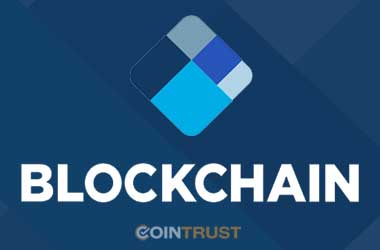
CEO of Planet Digital Partners, Steve Grossman, also a digital securities-funded game publisher, said “We see blockchain adding a whole new dimension to the gaming industry on many different levels — to extend the life of a game, to make it more interesting to gamers and to provide experiences that couldn’t have been provided before.”
In actuality, the buzz of blockchain in the gaming world might have significant implications for the sector as a whole, some experts believe. One instance is a cooking simulator game called “Cooking Mama,” where gamers are challenged to complete the hurdles related to making of the recipe. Grossman said the customer-created private keys, which are basically a series of letters and numbers which only a user will be aware of, can enable team to change the game’s complex algorithms of expression.
Consecutively, players can personalize the characters and modify the sauces in the game. The understanding and ease of access of the encryption key to the user alone also implies that players can possibly claim their amazing creations’ full digital ownership rights. Furthermore, users can pass on their masterpieces with the broad group of “Cooking Mama” deducing a public key which can then be used to switch that digital content between game participants.
Grossman said “Digital assets moving around in the PC world have been huge for years, [but] consoles have mainly blocked that.” Using blockchain, “we found a way to let users work with digital assets on private, key-driven elements … for unique ‘Cooking Mama’ experiences.”
As sports attract more of the imagination and creativity of the general public, some really think that blockchain might meddle with the sector. Rahul Sood, CEO of Unikrn, an esports gambling company, thinks that blockchain could make it possible for several agames to exchange digital assets. According to Sood, the notion is especially effective due to the rise of the completely free-to-play business plan in gaming. The overwhelming bulk of revenue in in an FTP game arrives from on-the-platform in-game purchases as users do not have to make the purchase to actually play.
In an interview with CNBC, Sood said “The ability to liquidate or trade … assets into other games would be great, and blockchain could really allow for that. Blockchain could disrupt the space in that these virtual items could be traded over blockchain and their whole virtual economy could be built on it.”
Blockchain advocates say the innovation can assist in promoting accountability and gaming transparency. In the case of Unikrn, more than 850,000 accounts are able to gamble on games of esport. However, it also means Unikrn has a sizable volume of transactions transactions to acct for, and the sheer number of those user accounts and dealings requires a high-level monitoring activity method.
Sood further said, Blockchain “really is the best way to track transactions.” He further told that there were “a ton of applications” for the purpose. He further said “We can do forensic wallet-tracking, we can see where money is coming from on the platform and we can stop anyone who cheats or games the system.”
However, blockchain’s digital securities side has already laid the path to to another avenue to invest in games. Planet Digital Partners subsidize games essentially via digital offerings of preferred stock that can be bought to finance a cart of 10 games— and “Cooking Mama” is one of those games in the basket. As revenue from those games is raised, investors obtain returns as a result of their original purchase of those preferred stock.
In essence, Grossman and his squad launched the scheme to democratize game funding. He said there are several gaming market sectors, and a good portion of the sector includes the billion-dollar blockbuster launches that usually see “returns of investment of tens of millions of dollars.”
Yet there is also a mid-market that has also managed to build hit titles. The existence of preferred stock provided digitally enables investors to tap into this market as the gaming industry is growing.
Grossman said “The midmarket sector has always been there. It’s not a new dynamic, but it’s a dynamic that’s becoming more magnified and [makes the sector an increasingly attractive] investment target.”
Yet attendees in gaming warned that blockchain is not inherently one size that suits all for the industry. While can be used in sports to decrease cases of cheating, or players reaping the benefits of game crashes, in every scenario it should not be “shoehorned”
Sood said “Where I see potential use for blockchain in esports is if a team were to create part of their governance around voting, and you want to vote on what’s happening with the team, player contracts and trading contracts. But it’s an idea that won’t happen in volume.”
He emphasized that blockchain contributes to the experience of gaming — but it won’t be taking priority over the concepts and qualities that make a game of quality.
“Blockchain is a cherry on the cake, it helps take it to another level,” he said.
